Happy Sunday from sunny (and hot) Florida. My family and I are on the road this week visiting family, and I just learned that the birthplace of the PC was here in Boca Raton. And I thought all the OG tech bros were out on the West Coast.
One of the hopes for this newsletter is to discuss not just issues relevant to particular religions or to address big-picture issues from a religious perspective, but also to underscore how religion is at the heart of many of the questions societies wrestle with.
And sometimes to underscore how religion should play a bigger part in public affairs. That’s the position of Knox Thames, a human rights attorney who’s worked on religious liberty issues for both the Obama and Trump administrations. Today in Dispatch Faith, Thames argues that the U.S. is making a mistake by not focusing on faith in our great power competition with China.
Knox Thames: Fighting China With Faith
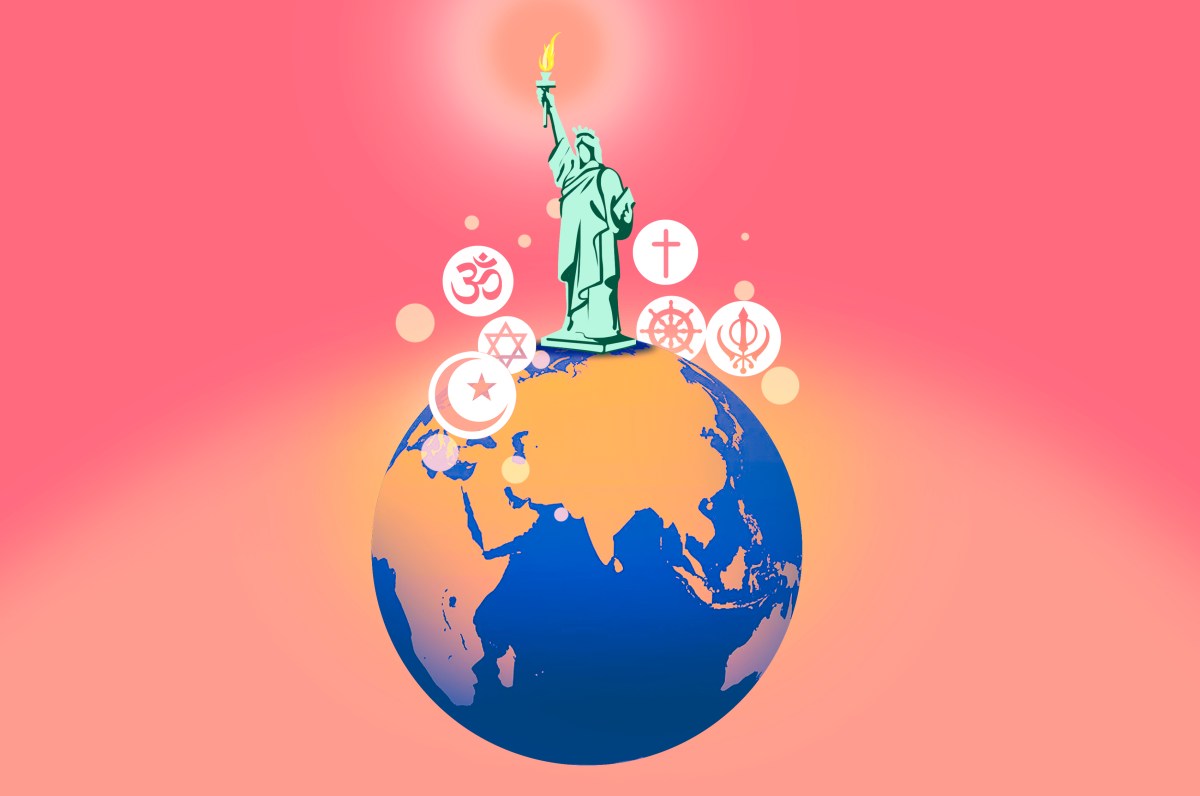
China’s Belt and Road Initiative (BRI) has endeavored to pull nations into the orbit of the Chinese Communist Party through development and trade. While expanding American investment is an obvious counter, we have an underutilized advantage against the CCP when it comes to deeply religious societies: the pious nature of our nation and U.S. support for religious freedom at home and abroad.
Can policymakers leverage this American value without instrumentalizing religion?
Belt and Road vs. Bible Belt
The Belt and Road Initiative, a priority of Chinese President Xi Jinping, seeks to recreate the Silk Road of antiquity to fuel China’s industrial growth by connecting China with Asia, Africa, South America, and Europe via land and maritime networks. But it has geopolitical goals too: swinging leaders toward Beijing using easy loans and Chinese labor-built infrastructure, deals many are willing to take despite warnings of a future debt trap or loss of sovereignty. The Council on Foreign Relations has tracked BRI membership, showing it to include most of Asia, Africa, and South America, and, notably, some members of the European Union and even NATO.
But these loans are not gifts. As the World Bank and others have explained, these nontransparent deals often resemble predatory lending, bringing unsustainable levels of public debt. As one analyst concluded, “Today, BRI lending has made China the world’s largest debt collector.”
In this great power competition, U.S. government investments, unlike China’s, are tied to good governance and shun corruption, focusing on helping citizens and not on burying nations in debt. While U.S. development efforts should continue, we can simultaneously compete with China in a different way. We don’t have our own belt and road initiative, but we do have the Bible Belt—and another one like it that spans much of the developing world.
Despite changing American religious trends, we are consistently ranked as the most religious industrialized country in the world. Our national tapestry of faith includes innumerable Christian denominations worshiping alongside active congregations of Jews, Muslims, Hindus, Sikhs, and others. But the United States isn’t alone in its religiosity. What we’ll call the Bible/Koran/Bhagavad Gita Belt runs globally east to west, between the 35th parallel north to the 35th parallel south. Much like the American South is more religious, the nations of the global South are some of the most devout places on earth. Compare India, Brazil, or Saudi Arabia with nations north of the line like secular Sweden, Russia, or Japan.
Policymakers should look for opportunities in the Bible/Koran/Bhagavad Gita Belt to leverage American faith as a soft power tool against Chinese influence. While religion seems a spent force in Europe, it is still a powerful dynamic elsewhere. According to the Pew Research Center, 84 percent of the global population believes in the transcendent, either in a specific god, gods, or a broader spiritual framework.
Gotta Have Faith
In this religious world, we should be able to outcompete Chinese dollar diplomacy by talking faith with the countries of the Bible/Koran/Bhagavad Gita Belt alongside traditional development work. The BRI is a shallow effort focused on elites, exploiting China’s immense economic power to pull countries into its orbit to gain influence, if not dominance. The United States can compete on an entirely different plane (a spiritual one) through faith diplomacy that would engage all levels of society. As a nation, we have much in common with BRI countries around the intrinsic spiritual nature of the human experience.
For billions of people, beliefs matter more than bucks.
A recent United States Institute of Peace (USIP) event demonstrated the opportunity for American faith diplomacy. Back in May, for Pacific Island Nation Week in Washington, D.C., the Australian and New Zealand missions to the United Nations brought their New York counterparts to meet with policymakers, elected officials, and civil society organizations. USIP hosted the group for a two-hour session, where they heard from analysts about U.S. priorities in the region. As a visiting senior expert at USIP and a former American diplomat who promoted religious freedom abroad, I was asked to talk about U.S. efforts and why the United States prioritized religious freedom.
My presentation highlighted our nation’s founding as a haven for persecuted religious minorities in Europe seeking freedom to practice their faith. I talked about Thomas Jefferson’s Virginia Statute of Religious Freedom, which paved the way for the First Amendment, with the statute’s ringing opening words of “Whereas Almighty God hath created the mind free.” I spoke of our country’s long effort to overcome the original sin of slavery thanks to the powerful leadership of faith leaders like the Rev. Martin Luther King Jr. And how, in 1998, Congress passed the International Religious Freedom Act mandating the United States protect and promote religious freedom abroad as a reflection of these values and to advance our interests in a secure and stable world. As the drafters wrote, it “shall be” the policy of the United States to be “Standing for liberty and standing with the persecuted.” It is a distinct characteristic of our foreign policy.
These themes resonated, as several diplomats approached me afterward wanting more information about religious life in the United States. I wasn’t surprised considering the deep religiosity of these small island nations, overwhelmingly Christian, with ties to missionary groups in America. Notably, many of these countries have the lowest governmental or societal restrictions on faith in the Pew Research Center’s annual survey. In fact, they score much better than their Aussie, Kiwi, and American hosts. Smaller religious groups fare exceptionally well in these nations. The Seventh-day Adventist Church, for instance, can claim the current prime minister of Papua New Guinea and the former prime minister of the Solomon Islands. Faith is part of their life, a source of identity and meaning. Yet one participant reflected on how rare it was for representatives of the United States to talk about these issues.
A Furiously Religious World
From my time working in the Middle East and South Asia, I know such a positive reaction isn’t limited to the Pacific. The United States can leverage this comparative edge over China’s BRI if policymakers make it a priority to realize America’s soft power advantage. Countless opportunities exist for partnership and engagement in the Bible/Koran/Bhagavad Gita Belt that won’t violate the First Amendment. The simplest first step is to highlight China’s abysmal record on religious persecution and U.S. efforts to defend the peaceful practice of faith.
Under Xi’s leadership, persecution on account of faith has skyrocketed in China. In a rare example of agreement, both the Trump and Biden administrations concluded that genocide is occurring against Uyghur Muslims, while ongoing repression crushes Tibetan Buddhism and independent Christianity. China also supports some of the worst regimes in the world that victimize religious communities, such as the military junta in Burma assaulting Rohingya Muslims and minority Christians, Russian aggression against Ukraine that has destroyed countless churches, the ayatollahs in Iran who persecute dissenting Muslims, Baha’is, and Christians. Citizens of BRI countries in the developing world likely don’t know about China’s oppression. Simply sharing facts will inform these societies about the ruthless nature of their Chinese partner.
Another element of any strategy would foster connections between American faith communities and their coreligionists in these nations. Americans are the best diplomats for our open and free society, and many of those connections already exist naturally. During my 20 years of government service promoting religious freedom abroad, I saw the power of people-to-people exchanges to dispel myths about “America being at war with Islam” or that we are a godless society. I’ve seen the positive fruit of sending delegations of Americans of different faith backgrounds to meet with their coreligionists abroad, highlighting religious life here, with all its freedoms, challenges, and contradictions. And personally, I’ll never forget the standing ovation I received from Muslim students in Pakistan when I spoke about the U.S. defense of civil liberties of Muslim Americans and our advocacy for Uyghurs, Rohingyas, and other persecuted Muslims internationally. America’s steadfast effort to defend religious freedom at home and abroad can win hearts and minds.
These efforts should enable partnerships between American faith-based organizations (FBOs) and those abroad, as well as partnerships with foreign FBOs and the United States on development projects. Many diplomats prefer to avoid religion, as they don’t understand the beliefs and history, with minimal margin for error. In June, Secretary of State Antony Blinken highlighted new training initiatives to help diplomats better engage with religious leaders overseas. In addition, last year USAID issued a new policy expanding the agency’s work with religious communities and faith-based organizations on development goals. Such efforts are positive and need to continue and grow, exploring partnerships around disease prevention, poverty alleviation, education, and other shared concerns.
The Pentagon has also started to do more. In 2020, the chairman of the Joint Chiefs of Staff issued instructions on strategic religious affairs, underscoring that “the identity of chaplains as religious figures makes them uniquely suited for engagement along religious lines.” Military commanders are now given license to deploy their chaplains for religious leader engagement, helping the top brass understand religious dynamics in their area of operation. Recent engagements by Navy chaplains in the Pacific demonstrate the potential.
The United States’ openness to faith and promotion of religious freedom is an advantage. Yet we must avoid the temptation to instrumentalize. The United States cannot favor specific communities over others. But we can explore partnerships as we would with secular groups. Scholars have at times harshly critiqued U.S. religious freedom policy, arguing we should not promote this right, through what seems to be misapplication of the First Amendment. But they ignore how U.S. advocacy is crucial to changing oppressive systems and getting victims out of harm’s way, combating extremism, and promoting stability. We should partner with those who wish to partner, hear their concerns and offer assistance, promote joint efforts when possible, and defend religious freedom for all.
By making connections with Americans of faith and highlighting our own religion-friendly policies, we can build lasting influence in ways impossible for Beijing. Policymakers need to recognize this comparative advantage, which has developed piecemeal, and create a true strategy. In the great power competition with China, we must use every asset at hand. China has money, as does the United States. But we also have the power of faith.
More Sunday Reads
- Since an assassin’s bullet missed its mark by mere millimeters on July 13, some Christians have discussed the degree to which they believe God actively spared Donald Trump’s life. On her Substack, Christianity Today editor (and occasional Dispatch contributor) Bonnie Kristian touches on the theological implications of those positions, before underscoring a larger point: “Instead I would only say that whatever your view of God’s providence, it should not waver in the political winds. If you think God protected Trump to advance his plan for the United States, okay. Yet if by some freak turn of events Trump loses this election, that’s not the time to go wobbly on providence.”
- Ten years ago this summer the world was confronted with the evil perpetrated by the Islamic State. In a piece at The Conversation, Güneş Murat Tezcür explains what made one group—Yezidis—such a target. “Yezidis’ marginal status is not new. Under the Ottoman Empire, Christian and Jewish communities were offered a limited degree of protection and autonomy in return for paying a special tax – known as the millet system,” he writes. “These groups were recognized as ‘People of the Book’: monotheists whose religious faith was accepted by Muslim authorities. Yezidis, however, lacked this status. Even today, Yezidis are often insulted as ‘devil worshipers.’ According to the Yezidi faith, God entrusted the world to his lead angel, Tawûsî Melek, which means ‘Peacock Angel.’ Some Muslim religious authorities, however, conflate this angel with Iblis, the personal name of the devil in Islam.”
A Good Word
The Kashmir region in northwest India has seen its share of religious and political strife, even in recent weeks. But Zaffar Iqbal reports for Religion Unplugged on Shabir Ahmad, a business owner, and other local Muslims extending a gracious gesture to Hindus making an annual pilgrimage: “‘We start a community kitchen for pilgrims every year just when the Amarnath pilgrimage starts,’ Ahmad said. ‘The pilgrimage is a symbol of brotherhood. All of us Muslim friends come together to set up this community kitchen for Hindu pilgrims during the pilgrimage period and serve them dishes before they set out for the pilgrimage. They are our guests, and we welcome them heartily.’”

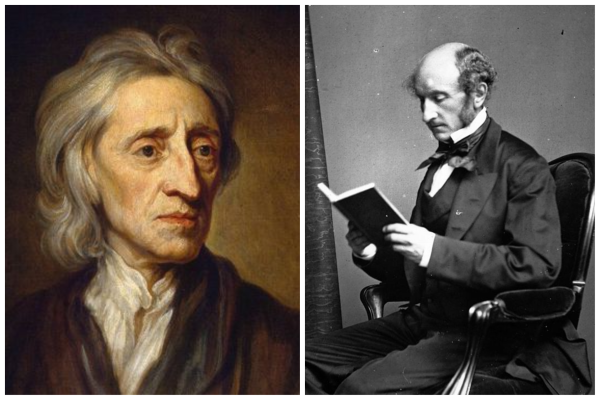
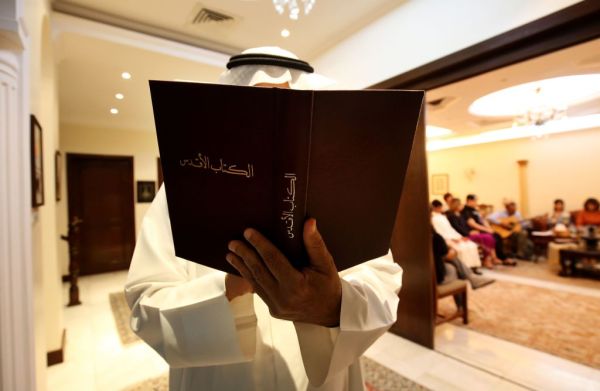
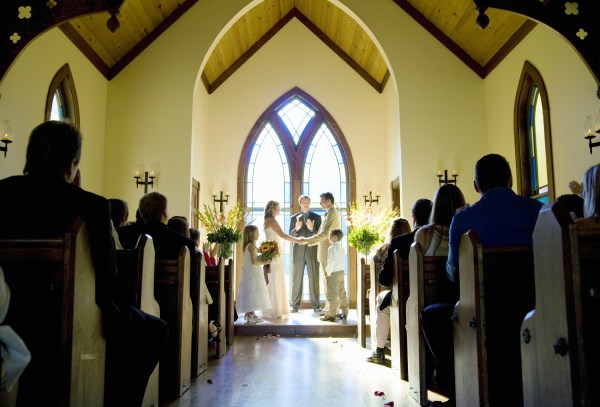

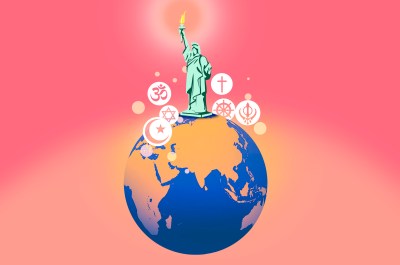
Please note that we at The Dispatch hold ourselves, our work, and our commenters to a higher standard than other places on the internet. We welcome comments that foster genuine debate or discussion—including comments critical of us or our work—but responses that include ad hominem attacks on fellow Dispatch members or are intended to stoke fear and anger may be moderated.
With your membership, you only have the ability to comment on The Morning Dispatch articles. Consider upgrading to join the conversation everywhere.